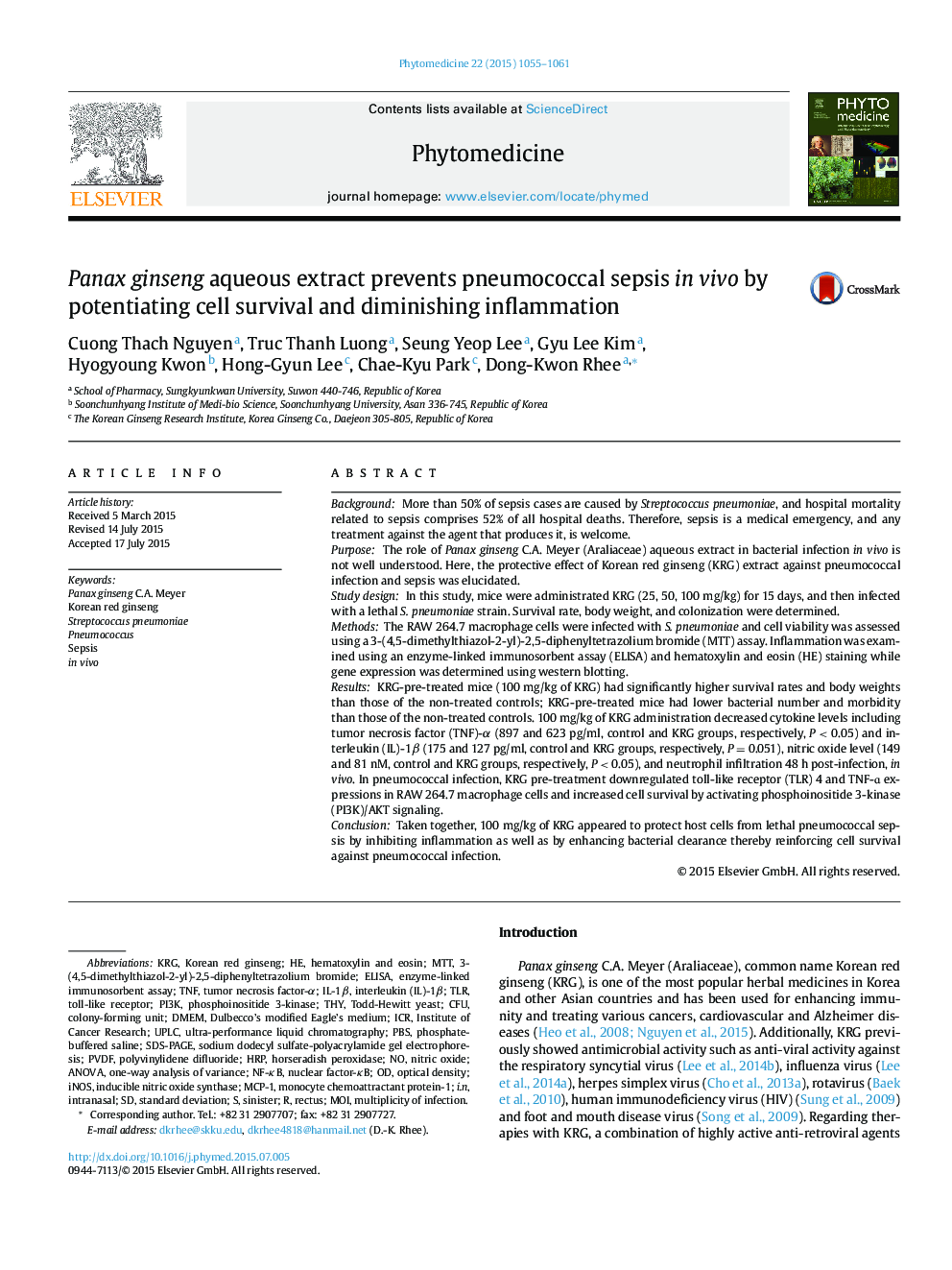| Article ID | Journal | Published Year | Pages | File Type |
|---|---|---|---|---|
| 5816355 | Phytomedicine | 2015 | 7 Pages |
BackgroundMore than 50% of sepsis cases are caused by Streptococcus pneumoniae, and hospital mortality related to sepsis comprises 52% of all hospital deaths. Therefore, sepsis is a medical emergency, and any treatment against the agent that produces it, is welcome.PurposeThe role of Panax ginseng C.A. Meyer (Araliaceae) aqueous extract in bacterial infection in vivo is not well understood. Here, the protective effect of Korean red ginseng (KRG) extract against pneumococcal infection and sepsis was elucidated.Study designIn this study, mice were administrated KRG (25, 50, 100 mg/kg) for 15 days, and then infected with a lethal S. pneumoniae strain. Survival rate, body weight, and colonization were determined.MethodsThe RAW 264.7 macrophage cells were infected with S. pneumoniae and cell viability was assessed using a 3-(4,5-dimethylthiazol-2-yl)-2,5-diphenyltetrazolium bromide (MTT) assay. Inflammation was examined using an enzyme-linked immunosorbent assay (ELISA) and hematoxylin and eosin (HE) staining while gene expression was determined using western blotting.ResultsKRG-pre-treated mice (100 mg/kg of KRG) had significantly higher survival rates and body weights than those of the non-treated controls; KRG-pre-treated mice had lower bacterial number and morbidity than those of the non-treated controls. 100 mg/kg of KRG administration decreased cytokine levels including tumor necrosis factor (TNF)-α (897 and 623 pg/ml, control and KRG groups, respectively, P < 0.05) and interleukin (IL)-1β (175 and 127 pg/ml, control and KRG groups, respectively, P = 0.051), nitric oxide level (149 and 81 nM, control and KRG groups, respectively, P < 0.05), and neutrophil infiltration 48 h post-infection, in vivo. In pneumococcal infection, KRG pre-treatment downregulated toll-like receptor (TLR) 4 and TNF-É expressions in RAW 264.7 macrophage cells and increased cell survival by activating phosphoinositide 3-kinase (PI3K)/AKT signaling.ConclusionTaken together, 100 mg/kg of KRG appeared to protect host cells from lethal pneumococcal sepsis by inhibiting inflammation as well as by enhancing bacterial clearance thereby reinforcing cell survival against pneumococcal infection.
Graphical abstract Download high-res image (130KB)Download full-size image
